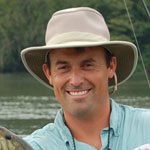
For the past decade, the presence of coyotes has increased pressure on native game species in every corner of the Carolinas. Because food is limited and nighttime temperatures are close to, at or below freezing in February, small animals and birds, including bobwhite quail, rabbits, squirrels and possibly small deer become vulnerable to predation from coyotes. But hunters can take advantage of the vulnerabilities of coyotes and yank out a few of these unwanted canines out of the brush.
Both coyotes and game species are constantly on the hunt for sustenance, both day and night. As nightfall creeps into the woodlands, coyotes become active and will amp up their hunting skills looking for animals scrounging up something to eat in the barren landscape.
Jett Webb from Conetoe, N.C., is an avid coyote hunter who prefers to hunt at night with electronic calls and lights when coyotes are actively looking for food.
“I personally enjoy hunting these coyotes with the use of red or amber lights and digital calls at night,” he said.
Coyotes patrol their home range looking, listening and smelling for something to satisfy their hunger. During the winter, coyotes will stay on their feet most of the night, looking for food, and that presents a good opportunity for coyote hunters to use electronic calls.
Webb uses a Fox Pro call with an assortment of playbacks that will range from pup distress calls to squealing rabbits. Whether preying on the coyotes’ maternal instincts or their empty stomachs, the calls will soon grab the attention of any coyote in listening range.
Invest in a good collection of calls and a powerful spotlight to get control of the coyote population to relieve pressure on native game species.




Be the first to comment